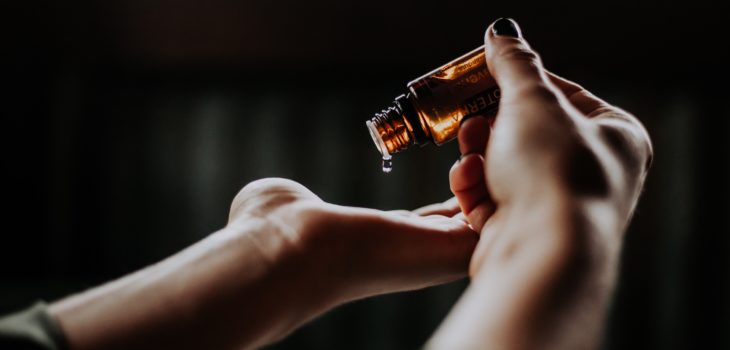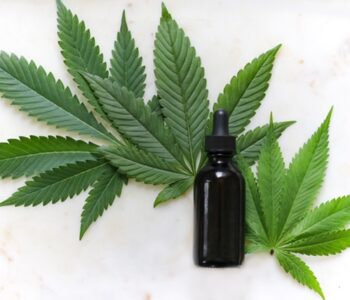 Education
Education
Medical Cannabis Boosting Quality of Life
The prohibition on cannabis is nearly over in Canada. In the past years, there has been extensive research done on the plant and its effects. The research of the medicinal properties that this botanical wonder possesses, is undeniable. As Canadian’s, we have had the benefit of legal medical cannabis since the first patients were granted permission from the Government of Canada in 1999. Due to the granted permission, research on cannabis is continuous. This is especially the case with recreational legalization just around the corner. Through the studies conducted on medical cannabis, it has been proven that there are some chronic and acute medical conditions that the use of cannabis is very effective for improving the patients health related quality of life (HRQoL).
Health-related quality of life has become a much discussed topic in the contemporary medical world. The Centers for Disease Control and Prevention defined HRQoL as “an individual’s or group’s perceived physical and mental health over time.” There are methods to measure HRQoL that are predominately through standardized surveys. As of yet, medical cannabis has not been known to specifically treat any chronic and acute conditions, diseases, and syndromes, for a cure. However, its use is pivotal in improving the patients health-related quality of life through treating the symptoms caused by many diagnoses.
To better understand the topics in this article, it is paramount to briefly discuss the two main active chemical ingredients in the cannabis plant. These active ingredients are called cannabinoids. Although there are over 100 cannabinoids that have been discovered, the two that have been mainly researched and discussed are delta-9-tetrahydrocannabinol (THC) and cannabidiol (CBD).
THC is a substance that causes an altered state of mind. In colloquial terms, this is the substance that causes the “high”, when inhaling or ingesting cannabis. THC has been a proven aid in reducing nausea and vomiting, as well as acting as an appetite stimulant.
CBD, on the other hand, helps to make the altered state of mind caused by the THC more tolerable. In this substance, there is barely any psychoactive effect while receiving all the medicinal properties of the plant. As a result of this, CBD is largely used in oil form as an antipsychotic, antidepressant, and sleep aid.
Epilepsy
Epilepsy Newfoundland and Labrador states that 300,000 Canadians are effected by epilepsy, that is 1% of the entire population. In a study conducted by Statistics Canada on the prevalence of Epilepsy in Canada, it was found that 44% of Canadians found their quality of life was effected a little bit to moderately. This was documented alongside 18% who fell on the more severe end of the scale, reporting that the seizure disorder effected their quality of life quite a bit to extremely.
Medical cannabis has been proven to be a promising therapy for many who suffer from the seizure condition. The British Epilepsy Association published a study in 2016 condoning the use of medical CBD enriched cannabis oil in the treatment of pediatric seizures. As well, Epilepsia conducted an international survey including patients, epileptologists, and general neurologists. The participants of the survey were from North America and Europe. This study concluded that 98% of survey takers would recommend medical marijuana in cases of severe epilepsy.
A recent story of “Charlotte’s Web, ” told on CNN and reported on in Medium, demonstrates the power of medical cannabis. This story showcases the effect of a hybrid strain of cannabis that has the ratio of 40:1 – CBD:THC. The product is a strain that has all the “medicinal purposes associated with the plant, but none of the psychoactive effects” (Boshoff). This was administered to a young girl, Charlotte, who suffers from a form of epilepsy called Dravet Syndrome. This form of the condition is nearly impossible to control. The family was interviewed as part of Sanjay Gupta’s documentary, Weed. During the film, Charlotte’s parents claim her seizures decreased from a staggering 300 a week to just one every seven days, as a direct result of medicating with this particular strain of cannabis. With the seizures Charlotte’s cognitive functioning was becoming impaired, and she lost her ability to walk. With the treatment of the CBD oil, she has now regained those functions, which will greatly improve her HRQoL.
Insomnia
Cases of insomnia inhibit the daily functioning of Canadians. It has been confirmed that medical cannabis can greatly assist in a restful sleep. Insomnia impacts an individual on “diverse areas of HRQoL, and that both pharmacological and non-pharmacological interventions can produce, to varying degrees, improvements in domains spanning physical, social and emotional functioning” (Kyle). As a pharmacological treatment, cannabis was studied extensively in the 1970s for the sleep aid properties of the whole plant. It was found, and confirmed, in recent studies that the most powerful active chemical of the plant is THC. THC enables the patient to fall asleep more quickly and to increase Stage 4 sleep. This is a deep stage of sleep prior to the dream state of REM. People who wake from this stage of sleep are typically disoriented for a few minutes as they come out of a deep sleep. This also proves that a night in this stage will be restful. In addition to a significant decrease in the time it takes to fall asleep and achieving a deep restful sleep, THC has been proven to keep patients who administer the medication, asleep through the night. The lack of interruptions of sleep assists in allowing the patient to experience Stage 4 of the sleep cycle for longer periods of time. When taking cannabis for insomnia it is to be noted that THC does inhibit and reduce the amount of REM sleep one would obtain. For some, this may be advantageous as those suffering from specific conditions such Post-Traumatic Stress Disorder, may prefer not to enter into an intense dream stage.
Any individual who is considering this medicine to treat insomnia should seek out a strain that is high in THC. In taking this medicine, it is important to make the correct choice in administration. There are two recommended courses: inhalation (smoke free), and ingestion by mouth. Both administrations are effective. However, when taking the edible form, the effect may take longer to set in. Once it does, it has been recorded that the benefits will last longer. The delayed but lasting effect of the medicine would be favourable for treating insomnia, as it would be preferable for the body to metabolise the medicine slowly over the course of the patients sleep to ensure a full night of rest.
Cancer Symptoms
The widespread disease of various forms of cancer leave many battling not only the cancer and its symptoms, but also the harsh symptoms of the treatments taken to rid the body of the disease. In an article written in West Asia Organization for Cancer Prevention, it stated that “Chemotherapy did reduce the QoL [Quality of Life] of breast cancer patients. Management of chemotherapy-induced loss of appetite, diarrhea, nausea and vomiting should be improved for a better outcome” (Chean). The management of the symptoms caused by chemotherapy could be treated directly and effectively by medical cannabis. “Considerable clinical evidence indicates that marijuana could yield a variety of useful medicines, especially for nausea, vomiting, and appetite stimulation” (Mack). A strain containing high amounts of THC would prove favourable for those who are suffering from symptoms of chemotherapy-induced nausea and vomiting.
Although the symptoms of the treatments for cancer can prove a cause in seeking the medicinal purposes of medical cannabis, the symptoms of cancer itself can also be remedied by the plant. Malnutrition is often a result of the disease. The loss of appetite and wasting effect most patients’ quality of life. This can lead to a condition called Cachexia, where the patient may have a loss of lean body tissue. Cannabis is widely renowned for appetite stimulation. This appetite stimulation would be best found in administering the cannabinoid THC.
Treating Symptoms
Unfortunately, there are a multitude of conditions and diseases that create symptoms that minimally, or greatly, effect the patient. These symptoms impact the individual’s health-related quality of life. Through the use of the correct strain of medical cannabis, these symptoms could greatly reduce. Some of the conditions that have been studied for treating the symptoms are: endometriosis – for pain control; fibromyalgia – for pain control, specifically for muting the overactive neuroreceptors; and post-traumatic stress disorder – for sleep, as well as alleviating anxiety and fear generated from trauma episodes.
With continued research and support, medical cannabis will evolve to become a well-utilized and lasting medicine in the contemporary medical community. Spurred by the drive from society, to return to a more natural way of treating diagnoses, this national legalization will be the opportunity to satisfy that desire. In conjunction with the additional research, the products will be more sophisticated. This will inevitably allow for more effective treatments. As a result, medical cannabis is and will continue to boost health-related quality of life.
https://www.cdc.gov/hrqol/concept.htm
https://www.cannimed.ca/pages/thc-and-cbd
https://www.webmd.com/pain-management/news/2018
0507/cbd-oil-all-the-rage-but-is-it-safe-effective#1
http://epilepsynl.com/statistics-and-facts/
https://www150.statcan.gc.ca/n1/pub/82-003-x/2016009/article/14654-eng.htm
https://www.sciencedirect.com/science/article/pii/S1059131116000054
https://onlinelibrary.wiley.com/doi/epdf/10.1111/epi.12843
https://www.ncbi.nlm.nih.gov/pubmed/18313952
https://www.ncbi.nlm.nih.gov/pubmed/19962922
https://www.cannabisclinics.ca/medical-marijuana-insomnia/
https://www.healthline.com/health/medical-marijuana/cannabis-for-sleeping#science-says
https://www.ncbi.nlm.nih.gov/books/NBK224387/



